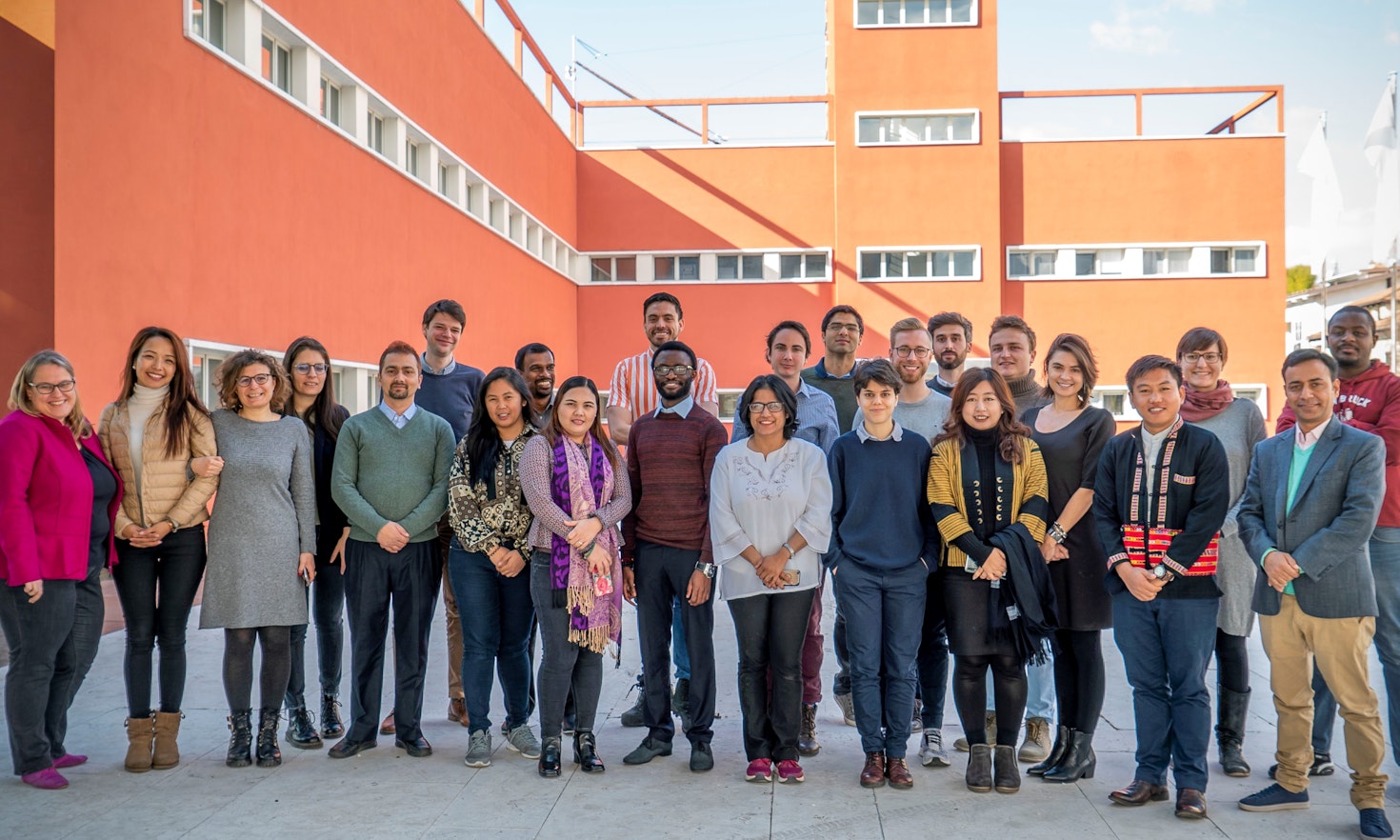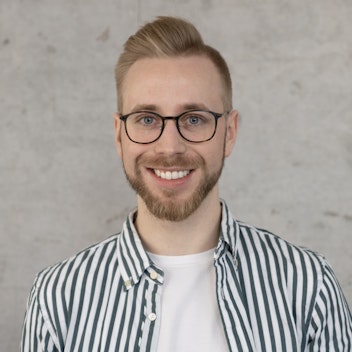2020 - A very special Winter School

I arrived in Innsbruck on February 16th, 2020. It was a beautiful sunny and warm day, and I was very excited about what would happen during the upcoming two weeks, of which I would spend one in Innsbruck and one in Bolzano. Not only are both wonderfully picturesque cities, which (admittedly) I had never visited before, but I would also be able to attend the annual ‘Winter School on Federalism and Governance’, organised by the Institute for Comparative Federalism of Eurac Research in Bolzano and the Faculty of Law and the Faculty of Social and Political Sciences of the University of Innsbruck. The focus of this year’s interdisciplinary programme was ‘Federalism and Language’.
Little did I, or probably anyone know, that this year’s Winter School would have a twist that no one expected or hoped for. You will, due to the worldwide events, restrictions, and measures, have probably already guessed, that it had something to do with Covid-19. And yes, you are right. But first things first.
After being welcomed to Innsbruck by an old friend now studying at the university, which later came in handy as she was able to explain to me in detail where I would need to go for each event, I followed her hand-drawn map on the morning of Monday, February 17th 2020, to the main building of the University of Innsbruck, where the Winter School would officially ‘kick-off’.
And what a kick-off it was! Not only were we welcomed with fantastic food, but also with even better greetings from everyone responsible for the Winter School. Introductory lectures and a keynote speech by the President of the Central Tibetan Administration, Dr. Lobsang Sangay, gave a glimpse of what would await us in the following days and hinted at the quality, experience, and internationality of the lecturers.
Apart from the fact that the lecturers coming to the Winter School were from all over the world, the 27 participants also represented 16 countries. This very diverse and international ensemble of participants and lecturers greatly enabled the learning process outside of the ‘classroom’ and also extended far beyond the purely academic exchange of ideas, opinions, and advice, towards a more cultural and personal exchange.
Hand in hand with this observation goes the necessity to, at this point, mention the fantastic and manifold ‘out of the classroom’ events that were offered by Eurac Research and the University of Innsbruck, to support the build-up of personal relationships with fellow participants in a short amount of time. And what can I say? The desired effect indeed occurred.
After spending one week in Innsbruck, discussing, listening, learning, and getting to know each other, it was time to relocate to Bolzano, where the second half – the second week of the Winter School – would take place. At this point, without really knowing it yet, the ‘twist-inducing’ events were already well on their way.
On the weekend of our relocation from Innsbruck to Bolzano, the first Covid-19 fatalities were reported in Italy, and many new infections detected in Lombardy, where, some municipalities were subsequently locked down. Shortly after, the first case was detected in South Tyrol. One could say that the timing of the virus, making its first official appearance in Italy, and our goal to continue the Winter School to Bolzano was not very lucky.
After the second part of the Winter School had started as planned, it was, even though initially thought to continue with a reduced program, eventually and prematurely discontinued due to the ongoing developments. While we were able to take part in a few lectures at the beginning of the week, the lectures that were not held, were subsequently made available digitally to the participants. This was certainly not the end to the Winter School I had expected. Seeing my newly gained friends leave early and also not being able to enjoy the last lectures in person, made me feel sad on the one hand and showcased the severity of what type of crisis had just started on the other hand. Nevertheless, having people to talk to, having my concerns taken seriously and considering the way the decisions and news were communicated, were certainly comforting.
Now, looking back at the Winter School, the most valuable academic experience for me personally was to get to understand the importance of languages within federal systems. For me, coming from Germany, having grown up as a German speaker, language, and the possible disadvantages arising from it, was never really a topic. Only when I started to develop an increased interest in the European Union, and the difficulties that come along with different languages, did I really become aware of this topic. Learning (amongst other things) about language as a driver for federalism, dealing with different languages within in a federal system and how different constitutions handle languages, has given me a valuable asset for the future in which I will be more sensitive to language diversity, language rights, inequality stemming from language, and also of possible ways to tackle these problems. Especially lessons that can be learned from language usage in federal systems and their possible applicability to the political system of the European Union seem very interesting. In this context, I am working on another blog article, which will follow soon.
Even though this Winter School undoubtedly was very special and ended rather abruptly, I would like to take this opportunity to thank everyone involved. I want to thank all the excellent, knowledgeable, and resourceful lecturers that I had the chance to learn from and also the organisers for acting in a most responsible and exemplary manner in this unpredictable situation where things were changing hourly. Thank you for providing us with a fantastic programme, great lectures, and for bringing together an inspiring group of participants (or rather: friends) to whom I would like to say: I hope that you are well and that we will see each other again soon!
 | After graduating from Kehl University of Applied Sciences (Germany) with a Bachelor’s degree in Public Management, Uwe Fromm is now pursuing a Master’s degree in Political Science (European Studies) at the University of Gothenburg (Sweden). His primary areas of interest are federal systems, the local level within them, and possible drivers for integration. He has moved close to Strasbourg, to Brussels, Gothenburg, and Bolzano during his studies mainly to broaden his horizon and gain valuable experiences. But he equally loves to ‘dive’ into the local culture and especially the local food. |
Citation
This content is licensed under a Creative Commons Attribution 4.0 International license except for third-party materials or where otherwise noted.






